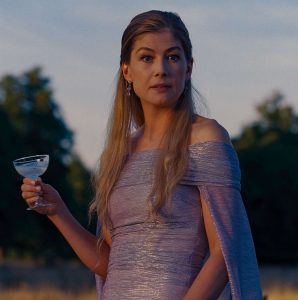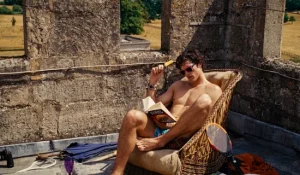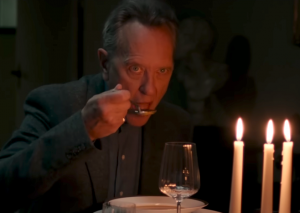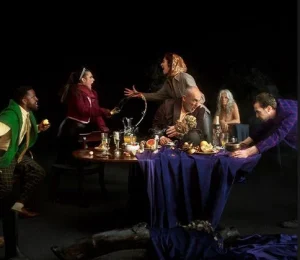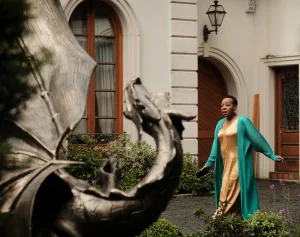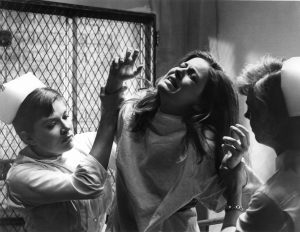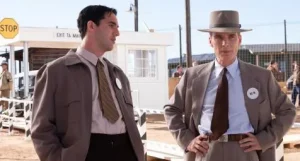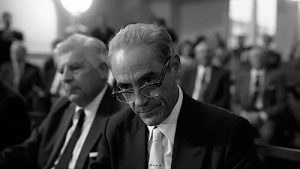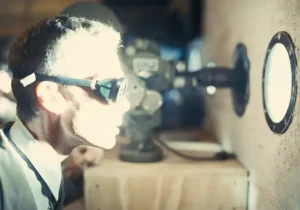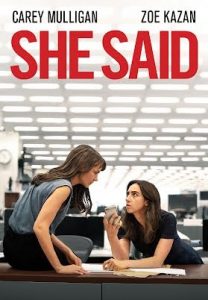The Varnished Culture's Thumbnail Reviews
Regularly added bite-sized reviews about Literature, Art, Music & Film.
Voltaire said the secret of being boring is to say everything.
We do not wish to say everything or see everything; life, though long is too short for that.
We hope you take these little syntheses in the spirit of shared enthusiasm.
Saltburn

(Directed by Emerald Fennell, 2023)
Why would any middle or working class young person accept an invitation to their aristocratic University chum’s stately pile? Every movie-goer knows that the guest will have the wrong clothes, the butler will despise them, something bad will happen and lives will be Changed Forever. There is of course the very slight chance that the young person will end-up filthy rich as a result of their visit. Perhaps that’s why they keep turning-up on foot at the magnificent iron gates, having somehow missed the serf who was sent to the station to meet them.
We’ve all seen this film before. Indeed, we at TVC saw it only last week but then it was called ‘The Lesson’ and the visitor was a tutor. As in the ‘Lesson’, the aristocratic family in ‘Saltburn’ has an elder son called Felix (here played as a blithe and gilded type by Jacob Elordi) but there’s a maze rather than a pond. As in ‘The Lesson’, the aristocratic father is played by Richard E. Grant but whereas in ‘The Lesson’ he could have been Withnail’s QC cousin, here he has nothing at all to do. Rosamund Pike has a lot more to do as Elsbeth, the family matriarch who is – for reasons which are not at all clear – quite taken with Felix’s lower class guest Oliver (Barry Keoghan). In fact, Keoghan is completely miscast. He is odd looking in a Joel-Egerton-with-a-fake-nose way but entirely without silky charm. He jars. Unaccountably, the aristocrats all love him, until they don’t. Oliver is a fish out of water everywhere – at home (in one of the best scenes he ‘pays’ a surprise visit to his parents), at Oxford, and of course, at Saltburn.
The film looks marvellous, but that’s easy. There’s Oxford porn, fashion porn and big house porn. Actually there’s plenty of real porn as well, which is ugly and completely cringy. 2000’s music is nicely used, in particular, MGMT’s ‘Time to Pretend’ during the obligatory brilliant young things’ debauched party scene, and ‘Murder on The Dance Floor’ (Sophie Ellis-Bextor) for the splendid mad dance through the house.
Alison Oliver is the fragile and rather stupid daughter Venetia and does well enough. Archie Madekwe as Farleigh, a cousin and hanger-on, is very good; he’s likeable despite himself. Reece Shearsmith appears briefly as a bootlicking tutor. Special mention goes to Ewan Mitchell as a nasty and probably insane mathematics student. The always excellent Carey Mulligan is a delight as eccentric friend of the family and another hanger-on, Pamela. (But see her in as an avenging angel in director Emerald Fennell’s sensational 2020 film, ‘Promising Young Woman’).
The film is slow to get going. There are improbabilities in the script and it’s undercooked. We don’t even know what Felix is reading at Webbe College. (Naturally Oliver is reading English). On the whole it’s amusing enough, at times shocking. Perhaps the whole thing is best thought of as a fairy tale, but it is certainly not a morality play. We have all seen this class warfare, fish-out-of-water film before and we know where it’s going. Six Degrees of Separation, The Go-Between, The Talented Mr. Ripley and – towering over even these – The Servant – got there earlier and did it better.
[Minority Report: A new low in high-born squalor. Bloody and yet at the same time, anaemic. P would rather watch Accident or read Brideshead Revisited.But not Harry Potter…]
Continue Reading →Raw

A film by Lumin Sports, produced by Henry Jones, shot by Henry Jones and Jack Shephard (November 2023)
The Great and the Good (plus your correspondent) gathered at Glenelg Football Club on 8 November to view an advance screening of this short, brilliantly produced, and exhilarating view of the 2023 finals campaign, viewed from within the inner sanctum.
Lumin ( https://luminsports.com/ ) is an expert qualitative data company, specialising in enhancing sporting analysis and performance. It’s flagship visualisation platform, “Arc, was launched in early 2019 as a way for technical and non-technical decision-makers in professional sporting teams to interpret complex athlete and team data to ultimately make better, more accurate and faster decisions.”
Lumin has been informing the Glenelg Football Club’s work for a little while now – its core competency is in high-quality data delivery. It is not a documentary company. However, its short piece, “Raw,” recently released on You Tube, outshines most of the documentary films washing though the internet, podcasts, and legacy broadcasting. It started life as an off-topic curio, a 10 minute focus on Matt Allen. Then the Tigers finished on top at the end of the minor round and so the story grew in the telling. The Lumin team had full access to the inner sanctum during the campaign, and so the film documents the tactics, strategy, analysis, psychology, camaraderie, media commitments, blood, sweat and tears, as the Bays drove for Premiership # 6.
All the key personnel are in view and the interviews are insightful. Just one example: High Performance Manager Tom Stevens explains that whereas a normal week’s regime will be about 21 kilometres, in the week before the GF it’s dialled-down to 16.5 (because there’s no game a week later). Prominent throughout of course is the Senior Coach, Darren Reeves, and we are reminded at the start by Head of Football, Paul Sandercock, how remarkable it is that he was only appointed less than a year ahead of Grand Final day. An envious supporter of another team commented on our post on the Grand Final thus: “What team starts the year with no coach and a Club in disarray and then takes all the toys…?”
Some of the language in the film is a bit ‘raw,’ but that’s footy. “Raw” is a little gem. Check it out on You Tube (and if you have a smart TV, it is even more impressive on a large screen).
The Lesson

Director, Alice Troughton; Screenwriter, Alex MacKeith (2023)
‘The Lesson’ should be good. It has lots of literary talk, Richard E Grant demonstrating his special scenery-chewing skills, Julie Deply mooching about, a big moody house with a pond. Note the pond. Grant is J M Sinclair, a famous novelist of the bad-tempered, autocratic variety. Julie Deply is Helene, his long-suffering wife who has some art curator job which is glamorous and doesn’t require any work, so she mooches about. Their needs and those of their miserable, lazy but talented son Bertie (Stephen McMillan) are tended to by the butler/cook and all knowing factotum Ellis (Crispin Letts). Liam (Daryl McCormack) drops his post graduate studies at Oxford to become a live-in tutor, assisting Bertie in his preparation for the Oxford entry examination. Naturally J M has writer’s block and can’t finish his latest book. Naturally Liam is writing his first book. J M works on a computer and Liam writes in longhand – Note that. Hovering over all is the ghost of Felix, the Sinclair’s elder son who committed suicide. The hints as to where this is all going are dropped like hammers in the hands of careless tradies. J M’s pronouncements right at the beginning about writers’ inspiration hit the viewer on the head like a hammer. The name of his novel is a really heavy hammer. Liam’s photographic memory for text looks suspiciously like a weighty item with which to beat tired plots.
The story galumphs along along a well-worn path. We have all been on this path before. Well, all of us but these characters. Well-read as they are, they don’t seem to see the hammer-shaped mountain of clichés and contrivances in front of them. Tell the agency that you didn’t take the gig after all and enter into a private agreement with the Sinclairs? Brilliant idea, Liam. Agree to critique Sinclair’s writing if he’ll critique yours? What could possibly go wrong, Liam? The ‘twist,’ when it finally meanders into sight, is no surprise, it’s only a slight bend after all and the hammers have flattened it.
The actors are all marvellous but they have little to do. The house and its grounds do most of it for them. Peering into and out of windows is important, as is leaning on the Giverny-style bridge. Sipping soup elegantly in the candle-lit dining room is a must. (The power’s gone out. ‘Bang!’ Did someone drop a hammer on the fuse box?)
So, it should be good, but it’s not. Don’t bother to go to see it. Let this be a lesson to you. Stay at home where you are safe from falling hammers. Read a decent novel instead.
Continue Reading →Barrie Kosky’s Das Rheingold
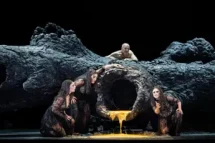
(Palace Nova, October 2023) Reviewed by Philippa Thomas
Barrie Kosky’s Das Rheingold worked superbly in the live screened London Royal Opera performance seen by some lucky Adelaide Wagner lovers at our Palace Nova Prospect cinema this month. The screening included a short explanatory interview with Kosky and conductor Antonio Pappano, where Kosky explained that his own planned Ring cycle deals with “recognisable human beings with all their flaws” within a context of “the unexplained“. His stress is on the origins from Greek tragedy rather than Norse mythology. Many opera critics have reviewed this production positively – both Pappano’s conducting and the strong cast having “no weak links” (Andrew Clements The Guardian 12/09/23). It is also noted in the media press that even though Pappano is shortly leaving his post as Music Director of the ENO, he will return to conduct the remainder of the Kosky Ring Cycle.
Each scene of Rheingold here happens among the charred ruins of the huge, dying ‘World Ash Tree’ which seems a clear reference to mankind’s despoiling of our planet. The Earth goddess Erda appears first on stage, and inhabits each scene as the ever-present observer, sometimes hiding her face in despair. Kosky has cast her as an impossibly ancient, vulnerable and totally naked figure, no longer able to protect her realm, but Erda is mute, her role beautifully sung off-stage by Wiebke Lehmkuhl. In the beginning, the Rhine maidens emerge from ash tree’s sprawling roots while a stream of gold leaks out of it from a subterranean Nibelheim. Soon appearing on stage, Alberich’s slave workers, tiny children wearing deformed adults’ head costumes, who are frantically collecting and carrying off the liquid gold, complement the overall grotesquery of the storyline. The final rainbow “bridge,” rendered as torrents of glitter as the gods approach Valhalla, does convey Wagner’s majestic and magical vision of the gods’ world.
The costumes are, of course, contemporary but not too over-done or stereotypical; for example, the gods in one scene are all suitably aristocratic, sporting Edwardian polo-playing breeches, boots and polo clubs, while the Rhine-maidens in revealing black and glitter garments, heavily made-up, cavort and frolic like vulgar music hall dancers teasing to the absolute extreme their audience of one – Alberich.
The cast are uniformly excellent in their singing and their acting fully is realised in screen close-up. In the Adelaide cinema screening, this viewer especially enjoyed Sean Panniker’s Loge. This fire god, twirling and smirking, is truly unnerving. Christopher Maltman’s excellent stage persona and voice renders a convincing and even sympathy-deserving Wotan. Christopher Purves as Alberich is no dwarf, but clumsy and sinister and thoroughly convincing as Wotan’s obsessed rival. He is also vocally very impressive “with his own arresting baritone” (Sam Smith’s review in Opera Online). For this Wagner fan, Kosky’s start on the Ring tetralogy was absolutely worth seeing!
[This review originally appeared in the October/November 2023 Newsletter of the Richard Wagner Society of South Australia. It is reproduced here with the kind permission of the author.] [TVC adds: This review sounds as though Mr. Kosky might be finally hitting his straps, after the disastrous The Magic Flute and The Golden Cockerel.] Continue Reading →The Following Events Are Based On a Pack of Lies

(Foxtel Go. Binge) (2023) Creators: Ginny Skinner, Penelope Skinner; Directed by Robbie McKillop and Nicole Charles.
The name and set-up of this sleek five-part ITV series leave the viewer suspecting a twist at the end. So that the reader will not be disappointed, we will tell you that the twist never comes. The narrative is pretty straightforward, if not always credible. But that’s ok. This is bite-sized entertainment of the fairly predictable, non-demanding type, with fairy-tale themes.
While pushing her bike around Oxford wearing a peculiar, self-designed red cape, our heroine, middle-aged sad-sack Alice Newman (Rebekah Staton) spots her Big Bad Wolf, the man known as Dr. Robert Chance (Alistair Petrie). Chance, under a different name, was her husband. He disappeared years ago, having cheated Alice, her family and friends in a fake investment scheme. Before and after his marriage to Alice, Rob cheated other women who, (or whose survivors) appear in documentary-like interviews from time to time. A nice touch. It’s rather odd that Alice hasn’t seen Dr. Chance before, because he is a well known eco warrior and intimate of Sir Ralph Unwin, (Sir Derek Jacobi) a David Attenborough type. Alice is reluctantly assisted in her plan to expose Chance by her father, Bill (Karl Johnson) and is suspected of insanity by her partner Benjy (Julian Barratt). Indeed, she appears unhinged and dazed most of the time. Rob, in the meantime, has inveigled himself into the affections of a famous fantasy writer, Cheryl Harker (Marianne Jean-Baptiste), a lonely widow. Rob sets about undermining and defrauding her too, in the most heartless way. Alice befriends Cheryl. Rob moves into Cheryl’s dragon-themed mansion. Drugging, delusion and daftness ensue.
There are some questions. Why does Rob stay in the house when he’s been outed? What happened to Sir Ralph? Who was the mysterious man to whom Dr. Chance spoke frequently on the phone? Why did he deliberately allow himself to get badly burned during one of his earlier scams? Why didn’t Oxford University expose his doctorate as a fake? How did Alice get a comatose Rob upstairs?
It’s beautiful to watch, the main players are sterling, especially Petrie as the evil mastermind with a truly pathetic side. Jean-Baptiste is a delight. There’s overacting, interesting clothes, lovely interiors. The plot does require the suspension of belief at times, but this is a fairy tale after all, complete with white rabbits, knights, a maze and an evil-step-sister-like boss named Juno Fish (Romola Garai). It is uneven; in particular, a misplaced court scene and, in the final episode, a serious take on the injustice done to women both jar. The tone of the myth and magic party at the end is simply odd messy. An attempt at humour using a cliched movie line falls flat. Despite all that, it is fun to watch. It must have been fun to make.
Continue Reading →Valley of the Dolls (Jacqueline Susann, 1966)
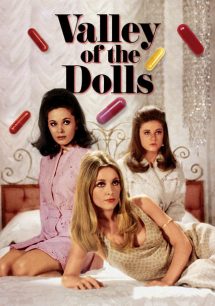
In 1945 Anne Welles is a prissy but astonishingly beautiful young woman who will do anything to get away and stay away from her small home town. She trips in, all nice and fresh, to New York and immediately gets a job with a marvellous legal firm that specialises in managing movie stars’ contracts. Her new friend Jennifer North is astonishingly beautiful too but most importantly she has SENSATIONAL KNOCKERS. Everyone admires her boobs. The brain dead but astonishingly beautiful singer she marries wants to drink from them (vomit). The sensitive upright senator she is later engaged to calls them ‘my babies’ and fondles them when Jennifer is in a hospital bed (Double vomit). Anne and Jennifer are friends with Neely O’Hara who is not astonishingly beautiful but freckly and pert and is an astonishingly fabulous singer.
Anne compromises her way through life, ignoring the wise advice of her boss Henry Bellamy, the best character in the book, although he is not astonishingly beautiful. Henry tells the reader what is wrong with Anne’s latest mad idea. He tells her not to touch his younger business partner, the fickle but astonishingly beautiful Lyon Burke. We know she cannot resist Lyon. No-one can, that’s the problem. The only advice Anne does accept from fatherly Henry is financial. So she becomes fabulously rich and stupidly unhappy..
Meanwhile Jennifer is using her chest to full advantage in risque European movies (those French!) and Neely is degenerating into Judy Garland.
The book was (allegedly) shocking for the time, given its characters’ relatively loose morals: no-one had sex or took drugs in 1966, apparently. The ‘dolls’ of the title, are, famously, ‘pills’. These chicks do take a lot of uppers, downers and sidewaysers, even judgmental old Anne in the end, but the title seems misplaced: this reader expected much more stuffing of the face with drugs. It’s certainly a page-turner, pacey and absorbing. Not Dostoyevsky (but it’s got boobs).
Continue Reading →Barbie (2023 Dir. Greta Gerwig)

Not the least weird thing about the ‘Barbie’ film is the casting. Margot Robbie is just not…Barbie enough…but she does invest the role with a certain joie de vivre and that’s something. Our Barbie (‘Stereotypical Barbie’) lives in a lovely dollhouse world where all the Barbies party and sort of wander about doing physics and stuff. The Kens don’t do anything and are deeply stupid. (Our Barbie’s Ken’s job is not surf lifesaver, as so many people mistakenly believe. His job is ‘beach’). Fittingly, Ken is played by Ryan Gosling, but it might as well have been Ryan Reynolds or any one of the interchangeable Hollywood Ryans. As in most fairytales, our heroine has to leave her custom-made paradise to go find herself – in this case, the plastic Barbie counterpart who is being played with ‘in the wrong way’ in the ‘real world’. When a character commences an earnest explanation of how this existential difficulty can work, he’s quickly stopped because no-one cares. To undertake her journey, Barbie has to visit Weird Barbie (played by Kate McKinnon as Zoey Deschanel in a Phyllis Diller wig and unfortunately not really weird or interesting at all). Barbie has to choose between shoes (one will take her to enlightenment and one will keep her in ignorance) and arrives with Ken in the real world where even the beachgoers of Miami laugh at them. Barbie is disappointed to find that the perfect female empowerment promised by Barbies has not come about. But not before she sees a billboard picturing Miss Universe contestants and exclaims, “The Supreme Court!” Ken on the other hand is delighted to learn about the patriarchy and he brings it back to Barbieland along with some ideas about the importance of horses in men’s lives. So far, so entertaining. Unfortunately, for this viewer at least, at this point the film collapses into ugly boy stuff as the Kens turn the pink into brown, ride horses, chase cars and fight. Isn’t this a chick flick?
The nod to 2001 (in which several celluloid baby dolls get their heads smashed in by enraged small girls) is clever. Rhea Perlman appears as a character straight out of “The Matrix” or “The Simpsons”. However, the main reference seems to be “Elf”, in which Buddy has to go on the same sort of journey. Indeed, Will Ferrell is in Barbie, as the CEO of Mattel, but he has little to do. He does have one good line, “what do we think when I say ‘sparkles’? That’s right, female empowerment”. Of course, there is an impassioned speech about how hard women have it. It is a good speech, no question, and the otherwise passive audience did chortle with agreement. But it was rather trite and is given by a Mattel employee and Barbie-butcher Gloria (America Ferrera) who seems to be in the movie to speechify only, while her bratty, sullen, know-all tween daughter Sasha (played by Ariana Greenblatt) doesn’t need to be in it at all. The feminist point could have been made in a less expository manner. For example, one of the strongest moments in the story occurs when Barbie and Ken are stared at by men in the real world. Ken remarks that all the staring is non-threatening, but Barbie says that she can “feel the violence”. She also remarks that she would never wear high heels if her feet were flat (human). Ironically, back in Barbieland, the Barbies use their feminine wiles to trick the Kens. Ultimately everyone agrees to give equal rights to everyone.
The script seems underdone, lacking the interest and depth it could have had. It tries to tick all the boxes – teen girls, disgruntled women, people who want to see Ryan Whatsits dance, Will Ferrell fans, Margot Robbie apologists, etc. The product placement is tedious for those who don’t know their Mattel world. Worst of all, much of ‘Barbie’ looks ugly. Barbie’s clothes are disappointing. Her hair? All over the place. I wanted to comb it.
Continue Reading →Oppenheimer

(Directed by Christopher Nolan) (2023)
On 16 July 1945, the first atomic bomb was detonated, at a test site named “Trinity”, in New Mexico, USA. It went so well that, on 6 August 1945 at 8.15 am, the US tried it on an actual city: Hiroshima. A blinding flash shot over the city, and then some 100,000 people were vapourised. The morning turned dark; a priest, Father Kleinsorge, wandered in the garden of his mission, dazed and bleeding, to see his housekeeper, Murata-san, crying out “Shu Jesusu, awaremi tamai!” (‘Our Lord Jesus, have pity on us!’).*
Of course, President Truman’s decision to bomb Hiroshima (and Nagasaki, three days later) was justified (arguably justifiable) by calculations that an invasion of Japan would cause even more death and destruction than the atomic bombs (not forgetting the fire-bombing of Tokyo). We suspect the Japanese soldiers, and perhaps citizens, would have fought like cornered cats: nevertheless, was any thought given to a blockade to bring about a fairly peaceable surrender?
Whilst, as Tom Waits sang, there is no Devil, it’s just God when drunk, we fear God has got onto the harder stuff. Now a junkie, She makes it her enigmatic aim to devise novel ways for humankind to self-immolate. The Manhattan project scientists had a notion that setting-off an atomic bomb might cause a chain reaction that would ripple well beyond the target; much like the boffins at the hadron collider project feared they might create an Event Horizon, or the tech-heads who speculate about where Artificial Intelligence might end up.
I’m writing this review in the Christopher Nolan film style, viz., it’s all over the place, like fissile isotopes. The moral issues of bombs are worth discussing but unlike most moral issues, these ones pose real issues. Nolan’s vivid film uses brilliant but flaky atomic physicist, J. Robert Oppenheimer (22/4/1904 -18/2/1967) to present but not resolve some of these issues. Played staringly well by glassy-eyed Cillian Murphy (Montgomery Clift would have been the perfect choice, but was unavailable), in the manner of a Gaelic midfielder who has just learnt he’s been cut from the team, the eponymous hero is a masochistic martyr and mystic, well described by a colleague as “not only self-important, but important.”
We track through the dimensions in a dazzling but migraine-inducing shower of sparks and splinters, as the director splits the atoms of linear time and narrative continuity. Here’s Oppy being ridden by his girlfriend (played by Florence Pugh, who has nothing to do but strip or put her head in the bath) whilst reciting the Bhagavad Gita, in Sanskrit, yet: “Now I am become Death, the destroyer of worlds”, a glorious mis-reading. Or there, chalking university blackboards and bothering Albert Einstein (Tom Conti). Or everywhere, developing the atomic bomb and agonising over whether it is a sign of moral turpitude. We doubt that President Truman (an unrecognizable Gary Oldman) really said of Oppy ‘Don’t let that cry-baby into this [Oval] office again,’ but you get the gist.
The development and final testing of the bomb are thrilling, brilliantly done. The use of sound – the overt emphasis on vibration – is very clever, and the soundtrack complements this. The pre-war and wartime competition to get there first, the internal debates and wrangling over scarcity of materials, security, military and political interference with science, and so on, are wittily done, and for the most part, refreshingly-free of agitprop. Where the film begins to founder is in the overlong aftermath, when Nolan delves into the humiliating stitch-up to which Oppy was subjected in the hot part of the Cold War, when he lost his security clearance, along with a few friends. This is the most conventional and least impressive part of the picture, albeit that the villain of the piece, Lewis Strauss, is portrayed with customary force by Robert Downey Jr.
This not a black and white matter (although Nolan often can’t decide when to add colour to his set pieces, which go from b/w to many hues for no apparent reason): By the time Strauss raised doubts about Oppenheimer, the Cold War was at full pitch: Klaus Fuchs (also at Los Alamos) had leaked atomic secrets to the Russians and was arrested in 1950; Oppenheimer, though not a card carrying Communist, was certainly a fellow traveller and no Republican; and there was personal animus, for the haughty professional physicist, progressive, and lapsed Jew, from the amateur-scientist, conservative Jewish banker who happened to head the Atomic Energy Commission, and was charged with developing thermonuclear superiority over the Soviet Union. Regrettably, we do not get a very nuanced treatment of this episode, which was, at the time, highly partisan and highly political. One hoped for better. This does not include the way Edward Teller is framed in the film (played with verve by Benny Safdie). Teller was a brilliant physicist and ‘father’ of the Hydrogen Bomb, which was opposed by Oppenheimer (and others). He was certainly not a warm and lovable human being, but he is shown to have had a sense of honour; after he gives rather equivocal evidence to the security hearing, Oppy shakes his hand, much to the disgust of wife Kitty.
The performances are fine. Matt Damon as Brigadier General Leslie Groves is particularly good. Emily Blunt has a nice way with a martini-soaked sneer (we liked it when, introduced to the modest and countryfied Trinity site where they were to live whilst the Manhattan Project was completed, she said “All that’s missing is a saloon“) but she had the burden of being a 1950s wife, with not much to do, and this was replicated in her role as well. Small key roles were nicely done: Those mentioned above; plus Casey Affleck as a soft-spoken but chilling security man; Kenneth Branagh as an avuncular Niels Bohr; Jason Clarke as a zealous investigating counsel; Matthias Schweighöfer as the suavely sinister Werner Heisenberg.
In the final analysis, as JFK, who gets a brief mention in the film, used to say, Oppenheimer is a worthy film well worth watching. Cut some speeches and staring. And let’s dig deeper into Oppenheimer the Man. A brief exegesis on fission and fusion wouldn’t go astray either, for those of us who skipped physics and chem. in school.
[*John Hersey, Hiroshima (1946), p. 27.]
The Guns of August Revisited

(By Barbara W. Tuchman, 1962)
Tuchman’s classic history of the stirrings of WWI deserves a fresh look, when one compares some of the events leading to and culminating in August 1914 with some of the events leading to and maybe culminating in August 2023:
1910: Edward VII dies / 2022: Elizabeth II dies. A comet appears in both years (“When beggars die there are no comets seen; the heavens themselves blaze forth the death of princes” – “Julius Caesar”)


“All the old buoys which have marked the channel of our lives seem to have been swept away.” (Lord Esher, 1910).
Meanwhile, in the years 1910 to 1914, Germany peers at the ‘weak link’ of France/Belgium, who refuse to play ball, and the threat of an Anglo/Russian alliance. Wilhelm II is enraged by both, and says “I could not be played with. Whoever in the case of a European war was not with me was against me.”
2014/15: A Crimean ‘skirmish’ (2014/15), whereby Putin invades Ukraine on a campaign of annexation.
July 23, 1914: Austria-Hungary gives an ultimatum to Serbia in the wake of the assassination of Archduke Franz-Ferdinand.
January 2022: Russia gives an ultimatum to NATO members states and others to “end NATO enlargement, compromise the sovereignty of other states, and curtail US and Allied ability to cooperate, conduct exercises, or deploy forces anywhere near Russian borders, establishing a de jure sphere of influence” [International Institute for Strategic Studies, 25/1/22].
August 1914: “War pressed against every frontier. Suddenly dismayed, governments struggled and twisted to fend it off. It was no use…General staffs, goaded by their relentless timetables, were pounding the table for the signal to move lest their opponents gain an hour’s head start. Appalled upon the brink, the chiefs of state who would be ultimately responsible for their country’s fate, attempted to back away but the pull of military schedules dragged them forward.” (Tuchman).
Recession and foreign trade embargoes loomed in both years.
24 February 2022: Russia invades Ukraine. Like Germany in 1914, it has become “a nation fed on the desperate delusion of the will that deems itself absolute.” Morale, that old-fashioned concept, still holds true.
There are stirrings of other times as well. NATO mismanagement of Eastern European membership looks a bit like the Treaty of Versailles. The Ukraine adventure, with its pile-on of countries busting to test their new-fangled weapons, is our Spanish Civil War. Hopefully we don’t see an incursion into Poland; or Georgia or the Baltics, for example.
“No worries” – In 1914, The Kaiser told his embarking troops, “You will be home before the leaves have fallen from the trees.” Mr. Putin seems to have had the same optimism (or insouciance?) for a quick result. Of course, if there is an escalation beyond the current fracas, that might be resolved more quickly than is comfortable.


Tuchman wrote of the brink of the Great War: “In Whitehall that evening, Sir Edward Grey, standing with a friend at the window as the street lamps below were being lit, made the remark that has since epitomised the hour, ‘The lamps are going out all over Europe; we shall not see them lit again in our lifetime.'”
Continue Reading →She Said

(2022)
Yes, it’s all ‘She Said’ in this tedious, overblown 90 minute polemic from director Maria Schrader. Anything ‘he says’ is misogynistic and stupid, ipso facto, because the speaker is a man. The scene is set early on with gratuitous Trump-bashing. Then whispers about Harvey Weinstein’s predatory behaviour are heard and leapt upon voraciously by our female reporters (they are, apparently, the only ones doing a real job apart from, possibly, Anderson Cooper who is also on to it, (no surprises there)). Everyone’s aghast. The ‘casting couch’ is such an evil and new concept (but only to be expected).
Weinstein is a grub and not the only one in Hollywood, true. But the utter glee and self-aggrandisement with which Meghan Twomey (Carey Mulligan) and Jodi Kantor (Zoe Kazan) (the real life New York Times journalists behind the original exposé) pontificate and air-punch when they get hold of a minor celebrity who will talk (sorry Ashley, sorry Rose) is simply wearisome. There’s some mysterious thing going on with Saint Gwyneth Paltrow whom the writers want to name as a complainant but just can’t quite.
The music, the physical trembling with emotion, the portentous voices and the meaningful looks are risible. We see our heroines juggling massive workloads and new babies. Post natal depression gets a moment, as do nasty men in bars. Male lawyers are dumb and must be countered with smug eye-rolling. A male editor is ok, as long as he is black and restricts his input to, “You go get ’em!” and “we’ve got a deadline!” Patricia Clarkson looking fabulous (is that ok?) trails about, supporting our reporters in a soft voice. If she’s embarrassed, Carey Mulligan should be hiding under the bed in shame. Miss this dross and watch her in Never Let Me Go and a truly powerful feminist story which leaves this weak entry for dead, “Promising Young Woman“.
She Said tries to be All The President’s Men but it is so, so not. She said. Me Too.
Continue Reading →
